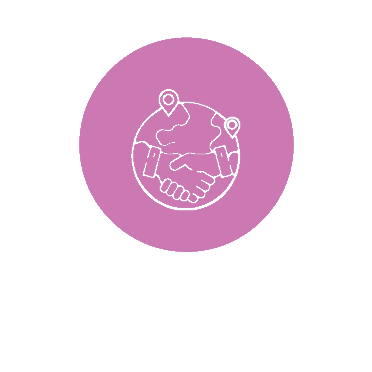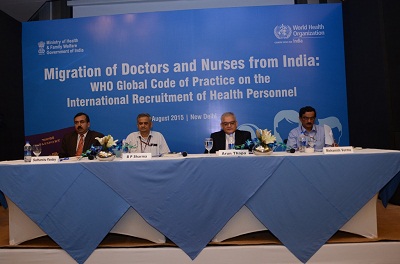
Module 6
Collaboration and partnership
Overview
Managing large movements of refugees and migrants in a humane, sensitive, compassionate and people-centred manner is a shared responsibility. Greater partnership and international cooperation among countries, the United Nations system, including the International Organization for Migration (IOM), United Nations High Commissioner for Refugees (UNHCR), WHO and other stakeholders are essential to assist countries in addressing the health needs of refugees and migrants and to ensure harmonized and coordinated responses. Addressing the complexity of migration and displacement should be based on values of solidarity, humanity and sustainable development. The health sector has a key role to play in ensuring that the health aspects of migration and displacement are considered in the context of broader government policy and in engaging and coordinating with other sectors to find joint solutions that benefit the health of refugees and migrants, including civil society, the private sector, refugee and migrant associations and the affected populations themselves. As one of the five core functions of WHO Health and Migration Programme, it aims to promote global multilateral action and collaboration to accelerate progress and achieve continuity of care.
This module contains two tools encompassing collaboration between countries and regions and global coordination and funding to support implementation of the Global Compact on Refugees (GCR) and Global Compact for Safe, Orderly and Regular Migration
(GCM).
Actions to be considered
Strengthen partnerships and intersectoral, intercountry and interagency coordination and collaboration mechanisms to achieve synergy and efficiency, including within the United Nations system, in particular the IOM and UNHCR, and with other stakeholders working towards improving the health of refugees and migrants.
Strengthen the humanitarian–development nexus to enhance coordination between humanitarian and development health actors and foster the exchange of best practices and lessons learned regarding the health of refugees and migrants among relevant actors.
Strengthen resource mobilization for flexible and multiyear funding to enable countries and communities to respond to both the immediate and the medium/longer-term health needs of refugees and migrants, identifying gaps and innovative financing to ensure a more effective use of resources.
Support existing and, as appropriate, new global refugee and migration coordination arrangements with Member States, the International Labour Organization (ILO), IOM, UNHCR, United Nations Network on Migration (UN Network on Migration), other United Nations bodies, other organizations such as the International Red Cross and Red Crescent Movement, other humanitarian and development actors, civil society and faith-based organizations.
Provide support for establishing or building on existing coordination mechanisms among countries that will encourage and allow for exchange of information and implementation of joint actions to help to ensure continuity of care.





